Changes in the Treatment for Out-of-Hospital Cardiac Arrest During the Initial Stage of the COVID-19 Outbreak in Japan
- PMID: 35800786
- PMCID: PMC9242768
- DOI: 10.7759/cureus.25502
Changes in the Treatment for Out-of-Hospital Cardiac Arrest During the Initial Stage of the COVID-19 Outbreak in Japan
Abstract
Introduction: Cardiopulmonary resuscitation (CPR) for out-of-hospital cardiac arrest (OHCA) patients during the coronavirus disease 2019 (COVID-19) pandemic carries an added risk of COVID-19 infection for healthcare workers. However, because of the shortage of medical supplies and limited evidence of COVID-19 in the initial stages of the pandemic, strategies for the management of OHCA patients may have varied across hospitals.
Method: A web-based questionnaire was used. The first section collected data about physician characteristics. In the second section, participants responded "Yes" or "No," if they had made changes in the areas of "personal protective equipment (PPE)" or "CPR Algorithm" for OHCA patients (these changes were the personal views of the surveyed respondents). The questionnaire was sent to the members of the Emergency Medicine Alliance mailing list. The response period was from May 22 to June 5, 2020 (the first state of emergency related to COVID-19 was declared on April 7, 2020, in Japan). Participants were asked to indicate their stress level resulting from these changes using the Likert scale ranging from 1 to 10, where 1 = "no stress" and 10 = "severe stress."
Result: A total of 110 physicians responded during the study period. The majority of participants reported changes in "PPE" (n = 106, 96.4%) and "CPR Algorithm" (n = 86, 78.2%). The reported stress level due to changes in PPE was 8 (IQR 6-9) and due to changes in the CPR algorithm, it was 7 (IQR 5-8).
Conclusion: Findings of this study suggest that physicians experienced changes in care for OHCA patients and felt stress during the initial stage of the COVID-19 pandemic. Thus, it would be better to list the actual measures that can be undertaken to prepare for any future pandemics.
Keywords: covid 19; emergency department cpr; ohca; personal protective equipment; treatment algorithm.
Copyright © 2022, Numata et al.
Conflict of interest statement
The authors have declared that no competing interests exist.
Figures
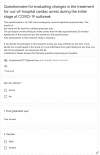
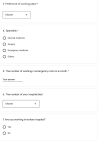
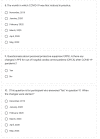
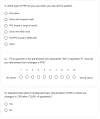
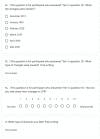
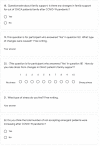

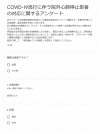
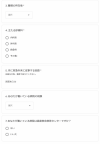
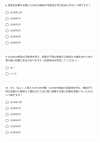
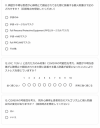
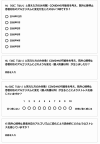
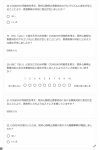

References
-
- Interim guidance for basic and advanced life support in adults, children, and neonates with suspected or confirmed covid-19: from the Emergency Cardiovascular Care Committee and get with the guidelines-resuscitation adult and pediatric task forces of the American Heart Association. Edelson DP, Sasson C, Chan PS, et al. Circulation. 2020;141:0–43. - PMC - PubMed
LinkOut - more resources
Full Text Sources
Miscellaneous
